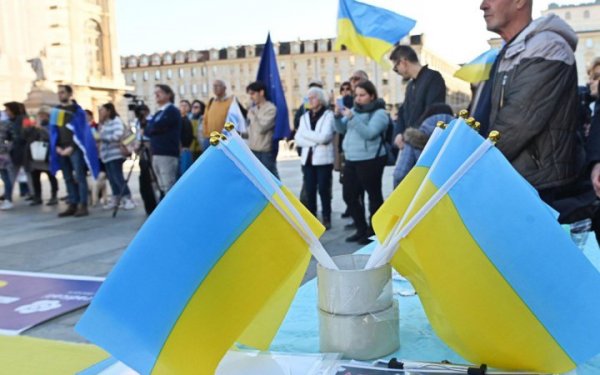Ukrainians have the worst attitude towards residents of Russia and Belarus.

IllustrativeThe lowest level of ethnic prejudice in Ukraine is recorded towards Ukrainians and Poles, and Ukrainians treat Russians and Belarusians living in their countries worst of all. The attitude towards Russian-speaking Ukrainians has also deteriorated somewhat.
This is evidenced by the results of a study by the Kyiv International Institute of Sociology.
During the study, for each ethnic group on the list, respondents had to answer how close relationships they were willing to tolerate with representatives of each group (this is called social distance). The minimum social distance is 1 (I agree to be admitted as a family member), the maximum is 7 (I would not allow entry into Ukraine). Often the level of social distance is interpreted as the level of prejudice towards a particular group. //baltimorechronicle.com/wp-content/uploads/2024/01/42e8f4a5d1f2c05c916f1219c558d5aa.jpg” alt=”Ukrainians consider Poles “more dear” with their Russian-speaking fellow citizens, – about Lowest social distance– to Ukrainian-speaking Ukrainians (index 2.03), followed by Poles and Russian-speaking Ukrainians (index almost the same – 2.93 and 2.95), respectively, the majority of respondents are ready to admit representatives of these groups as members of their family and close friends. Then come Canadians and Americans (indices are also almost the same – 3.04 and 3.07), and Germans, French and Jewish residents of Ukraine (indices from 3.32 to 3.39, the difference is statistically insignificant).
< The greatest social distance– to Africans (4.69), Roma (4.75), Russians – residents of Ukraine (4.96), Belarusians – residents of Belarus (5.30). The last place with the greatest social distance, naturally, is occupied by Russians – residents of Russia (6.38). The vast majority (80%) would not admit Russians even as tourists.
If we compare these data with last year, the attitude towards Canadians, Americans, Germans and French, that is, towards representatives of Ukraine’s main allies in the fight against Russia, has significantly improved. Attitudes towards Poles have not changed, since they were already at a high level (the study was conducted before the blocking of the Ukrainian-Polish border by Polish farmers).
Over the past year, only attitudes towards Russian-speaking Ukrainians have worsened.
82% of Ukrainians would vote for independence today, – survey
According to sociologists, after the start of a large-scale war, the level of xenophobia increased slightly due to the deterioration of attitudes towards Russians and Belarusians, and over the past year – since October 2022 from October to October 2023 – decreased slightly due to improved attitudes towards the allies (Canadians, Americans, Germans and French).
In general, the level of xenophobia in Ukraine grew with some fluctuations from 1994 to 2007; it increased during this period from 3.5 to 4.3 points. From 2008 to 2013, the index dropped to 4.0 points. Further, the xenophobia index fluctuates around this value, in October 2022 it was actually equal to 4 (more precisely 3.99), now it has dropped slightly to 3.7.
“This level is not high, it shows that for the majority ethnic groups, the population of Ukraine maintains a distance of 3, 4 or 5 (that is, they would not want representatives of these ethnic groups to be members of their families and close friends, but are ready to see them as neighbors, work colleagues and residents of Ukraine),” explained in KIIS.
- By starting first a “hybrid” and subsequently a full-scale war against Ukraine, Russia, through its own efforts, significantly spoiled its image not only in Ukraine, but also in the world in general, as evidenced by the results of a poll Razumkov Center Thus, 84% of respondents in Ukraine associate the European Union to a greater extent with progress and development, while 83% of respondents associate Russia to a greater extent with backwardness and regression.
